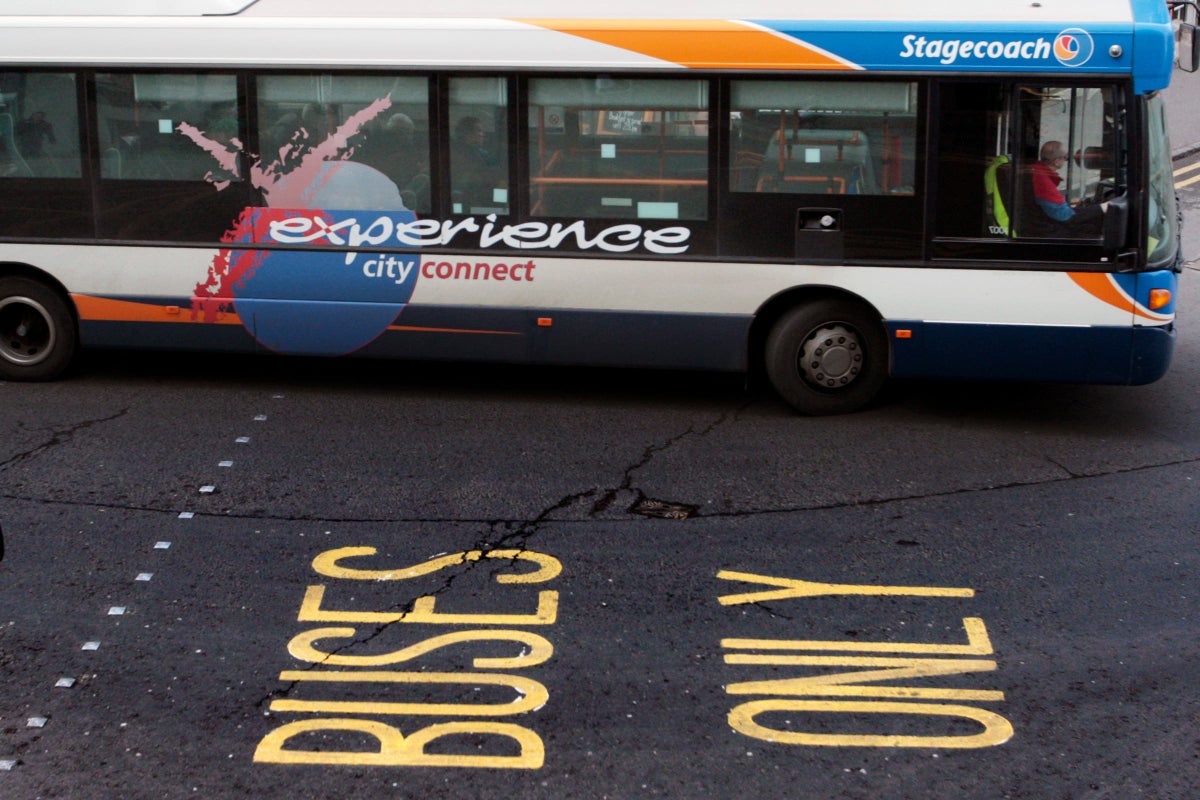Trump is trying to kill rural internet because the law that pays for it has ‘equity’ in the name

Since President Donald Trump took office, one of his fondest pastimes has been firing off randomly capitalized social media posts lambasting various laws as—and this is a technical term—too woke to be legal. Among his targets last week was the Digital Equity Act, which he deemed “RACIST,” “ILLEGAL,” and “totally UNCONSTITUTIONAL.” He wrapped by promising to (attempt to) end the program immediately. “No more woke handouts based on race!” he wrote.
Other than the name of the Digital Equity Act, basically everything about Trump’s post is wrong. Overall, the vast majority of Americans use the internet—96% of adults, according to Pew Research Center data. Yet there remains a persistent “digital divide” in this country, which breaks down on lines that will be unsurprising to anyone with a passing familiarity with its history. As recently as 2019, for example, only 71% of people who didn’t graduate from high school said they used the internet, and less than half—46%—subscribed to home broadband. In 2021, 85% of households making less than $25,000—nearly 23 million households—had a computing device (desktop, smartphone, or tablet) at home, compared to over 99% of households earning $150,000 or more, per U.S. Census Bureau data. Among those households making less than $25,000 a year, 16% had internet access only through a smartphone, compared to just 5% of households at the other end of the income spectrum.
The Digital Equity Act, introduced in 2019 by Washington state senator Patty Murray, a Democrat, and passed as part of President Joe Biden’s bipartisan infrastructure law two years later, aims to narrow these gaps, if not close them altogether. The law established a trio of grant programs that allow states, Tribes, and other organizations to apply for money they can use to get people online and provide them with the tools necessary to make safe, effective use of the web. (The ability to log on is not especially useful if, for example, you are unfamiliar with the hamfisted phishing scams that will start landing in your Gmail inbox two minutes after you create it.)
By passing the DEA, Congress acknowledged the simple fact that it is more or less impossible to find jobs, do homework, obtain healthcare, apply to college, pay taxes, and otherwise fully participate in modern society with limited and/or unstable internet access. The law set aside a total of $2.75 billion over five years for its purposes, which, in the context of the federal budget, is roughly analogous to a thimbleful of Evian poured into the infinity pool on a megayacht.
Why, then, is Trump so incensed about the Digital Equity Act? Regrettably, the answer is as stupid as it is cynical: It has the word “equity” right there in the title, and he and his fellow Republicans are constitutionally incapable of understanding the term outside of the context of the right-wing culture wars they are obsessed with fighting at every turn. His preoccupation with ferreting out “racial handouts” via clumsy CTRL+F search is now so all-consuming that he is trying to cut government spending that has nothing to do with race, and that would meaningfully improve the lives of millions of voters, many of whom cast their ballots for him six months ago.
Some DEA funding recipients have already received notices purporting to cancel their grants. But as is the case with all of Trump’s unilateral threats to revoke duly enacted federal laws, “ending” the DEA is not as simple as the president doing a post on a social media network he controls. Federal judges have spent the last several months blocking many of his illegal attempts to withhold congressionally appropriated funding from those who are entitled to it. Here, too, any would-be recipient of DEA funds who takes the administration to court should have a decent chance of prevailing.
But the mere fact that Trump is attacking the DEA—a modest, targeted, flexible attempt to extend an essential service to people who do not yet have it—demonstrates just how uninterested he is in doing anything resembling the basic work of governing. In a press release, Senator Murray described Trump’s attempts to withhold “resources meant to help red and blue communities…[to] close the digital divide” as “absolutely insane.” A good rule of thumb in politics is that when a 74-year-old Democratic senator is angry enough to use phrases like “absolutely insane” in their official communications, the characterization is probably accurate and more than appropriate.
The text of the DEA acknowledges that the digital divide, like many problems in this country, affects members of racial and ethnic minority groups, and frames digital equity as “a matter of social and economic justice.” But the law does not define the concept solely (or even primarily) in terms of race, as Trump asserts. Instead, it emphasizes that the law is intended to cover lower-income people, veterans, people with disabilities, and people living in rural areas, among other demographic groups whose members face systemic barriers to getting on the internet. It is not different from any number of federal programs that identify the intended beneficiaries with specificity; doing so is, one might say, efficient. To the extent that the DEA touches on race, it does so only in the sense that, as is the case with every multibillion-dollar grant program Congress creates, some number of people whom the money helps will, in fact, not be white.
The Digital Equity Act should be the sort of policy that conservatives, who treat any invocation of diversity as a form of illegal discrimination, nevertheless enthusiastically support: The law doesn’t aim to provide some greater, privileged level of internet access to anyone, but only to establish a baseline level of internet access for everyone. Already, deep-red states like Alabama, Indiana, Arkansas, and Iowa have completed their digital equity plans, which repeatedly affirm the urgent need for federal intervention, especially in rural areas. Alabama’s plan, for example, notes that 14.3% of its residents who do not have broadband at home say the service still isn’t available where they live—nearly twice the national figure.
Other states are even further along in the process. During the last few weeks of the Biden administration, the Department of Commerce approved a total of $85 million in funding for initiatives to educate users about the basics of cybersecurity and digital privacy in North Carolina; to make internet access more affordable in Kansas; and to provide web devices and skills training in Mississippi. In 2024, these states voted for Trump by 3, 16, and 23 points, respectively.
Republicans who supported the DEA in 2021 had no problem with its basic premise. For example, at the time, Ohio Senator Rob Portman emphasized the impact of limited web access on “overlooked and underserved communities,” and touted the potential for “comprehensive digital equity plans” and “digital inclusion projects” to close these “access gaps”—a quote that might get him run out of the party on a rail if the White House finds out about it.
Four years later, GOP lawmakers are happily seizing on the Trump administration’s ongoing anti-integration crusade to rail against the DEA for its state-sanctioned anti-white bigotry. Texas Senator Ted Cruz, for example, hailed Trump for ending the DEA’s “impermissible discrimination,” which he described as part of the “Biden-Harris administration’s woke spending spree.” For him, preserving the availability of $55 million in federal funding allocated to his state is less important than complimenting his party’s leader in public.
Conservatives often criticize diversity, equity, and inclusion principles by focusing on ostensibly zero-sum resources: well-paying jobs, prestigious college admissions offers, and so on. But this framework makes absolutely no sense in the context of the DEA, which does not “deny” anything to anyone on the more online side of the digital divide. A wealthy suburban family with four laptops, four smartphones, and a tablet or two does not need more resources to use the internet; the provision of government-subsidized mobile hotspots for rural middle school students won’t affect the ability of white-collar employees living in major cities to get online and do their work. Calling the DEA “discriminatory” because it benefits people without internet access is like a person with 20/20 vision complaining because their optometrist didn’t write them a new glasses prescription: Sure, technically, you aren’t getting something that others are getting, but that’s only because you can see perfectly well already.
In a functioning democracy, the Digital Equity Act would be obscure because it is uncontroversial—the product of a bipartisan consensus that making the internet available to everyone is a simple, efficient, and inexpensive method of ensuring greater equality of opportunity. If Trump gets his way, people who remain marginalized by their limited internet access will remain that way for the foreseeable future, all because a reactionary octogenarian encountered statutory language that he didn’t understand, and that made him upset.
What's Your Reaction?
 Like
0
Like
0
 Dislike
0
Dislike
0
 Love
0
Love
0
 Funny
0
Funny
0
 Angry
0
Angry
0
 Sad
0
Sad
0
 Wow
0
Wow
0






















































![The Chi Season 7 Premiere: Alicia Kills [Spoiler] in Vengeful Attack — But Did She Get the Right Man? Plus, Grade It!](https://tvline.com/wp-content/uploads/2025/05/the-chi-season-7-premiere-recap-episode-1.jpg?#)







































